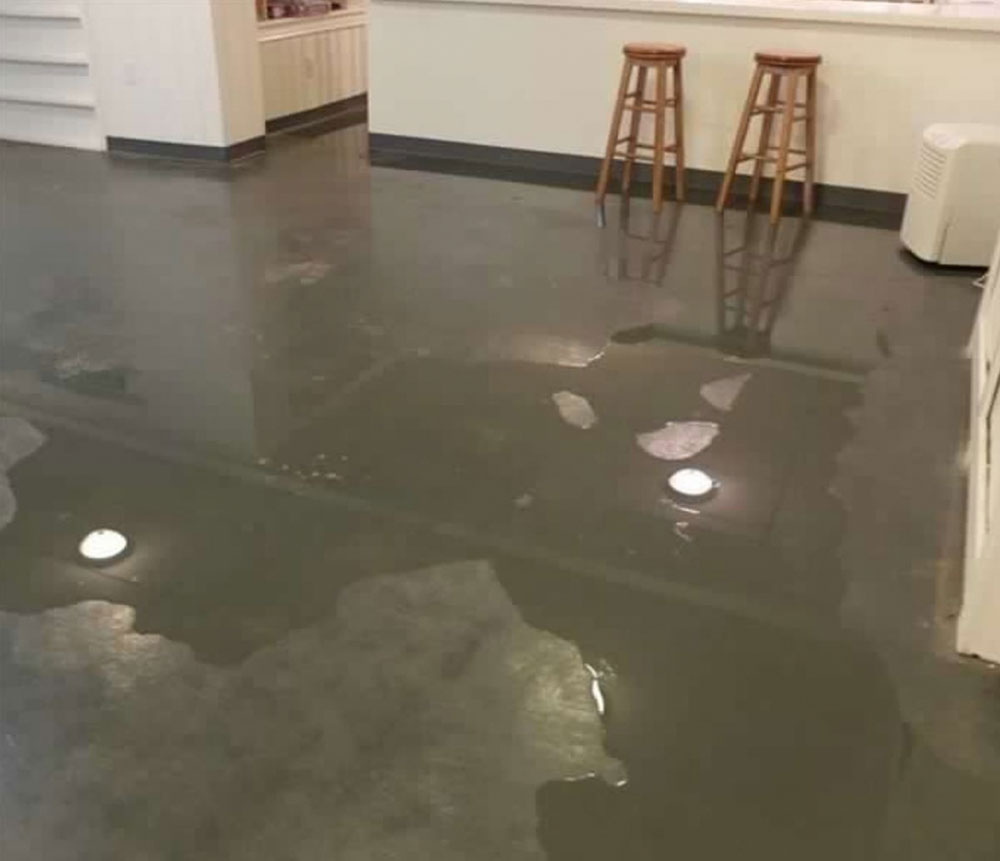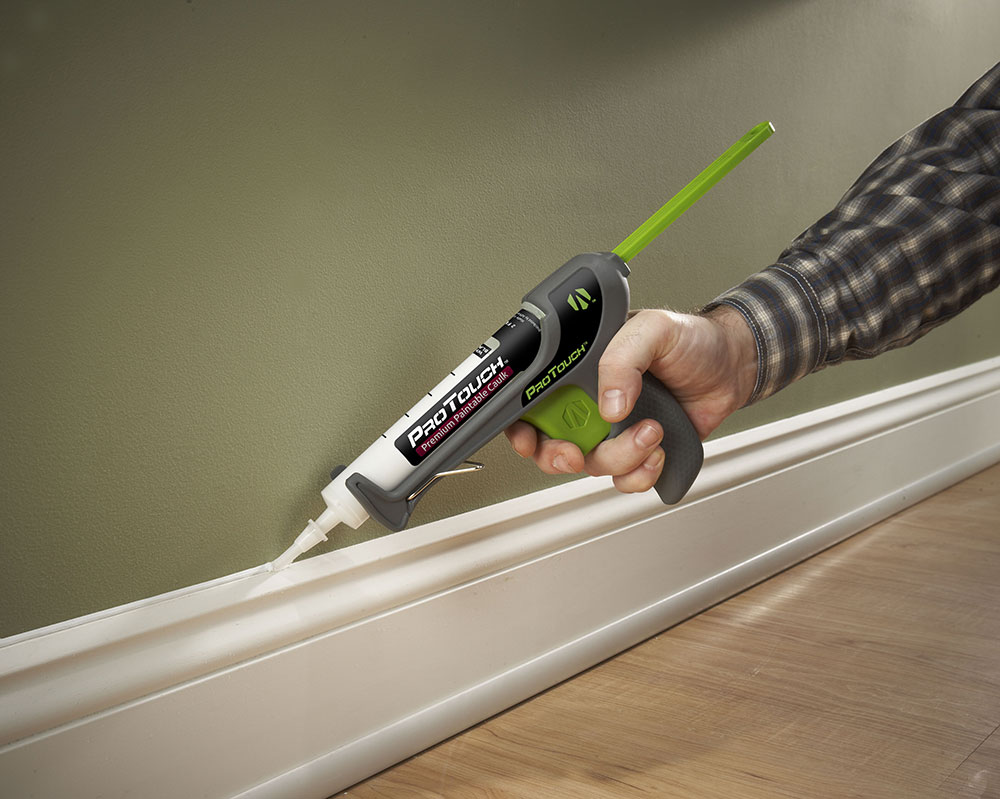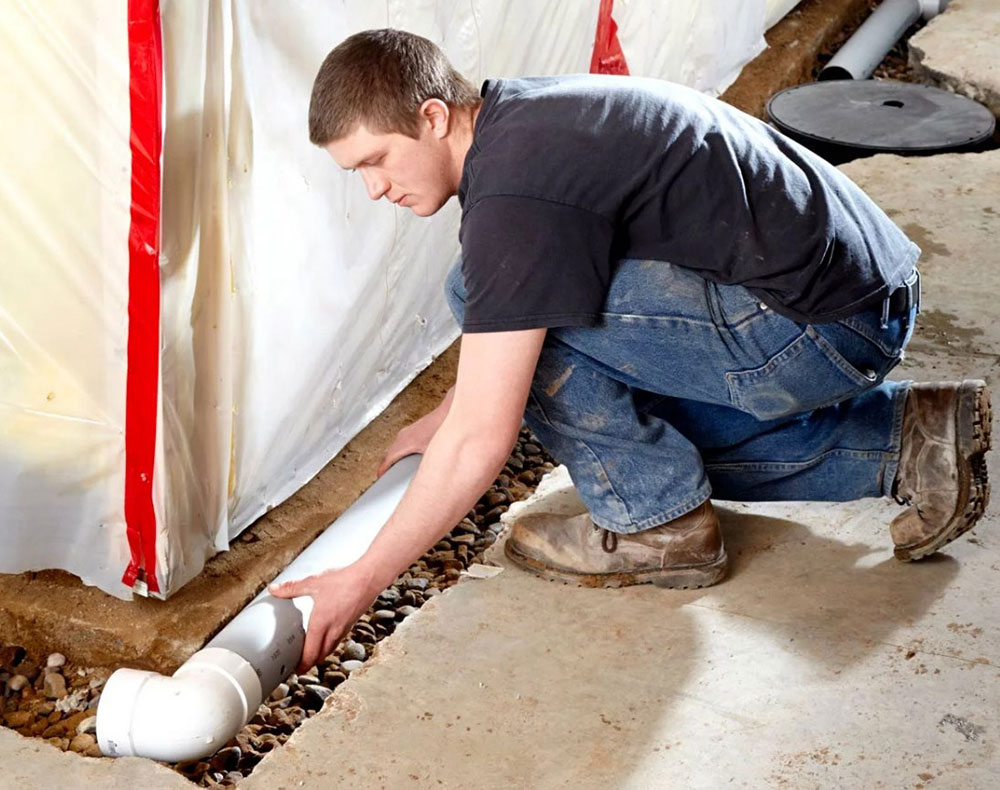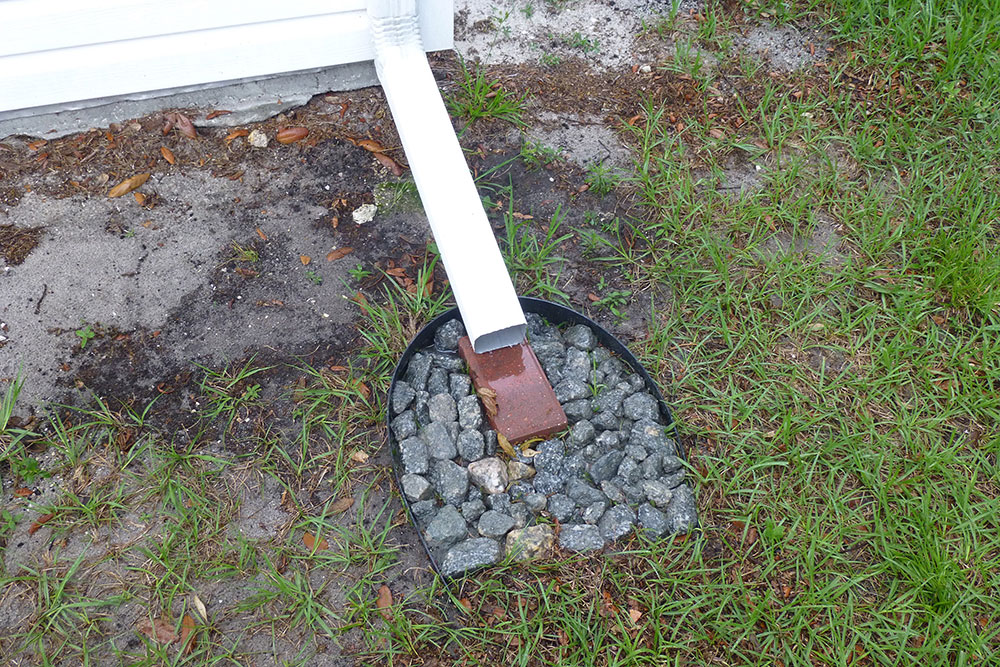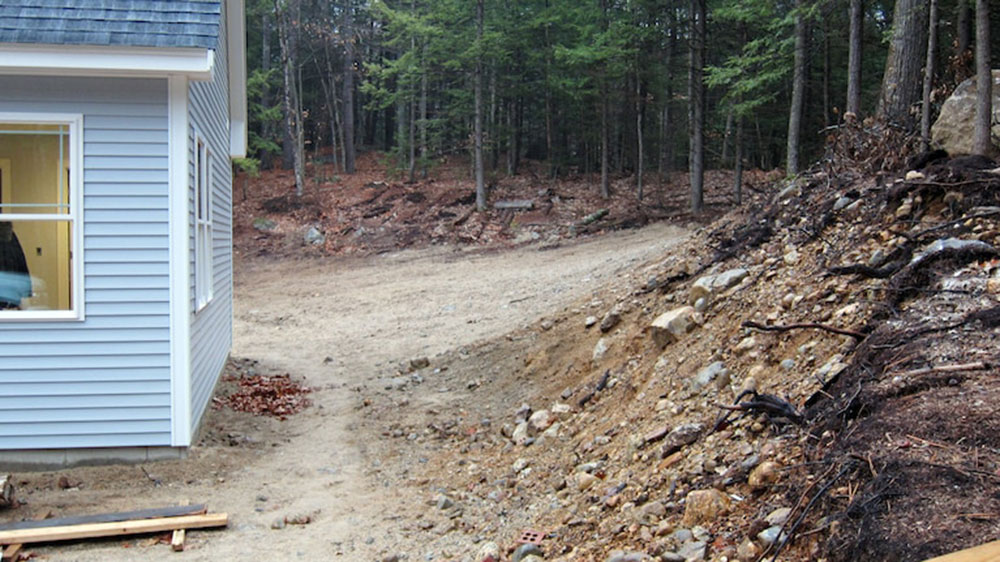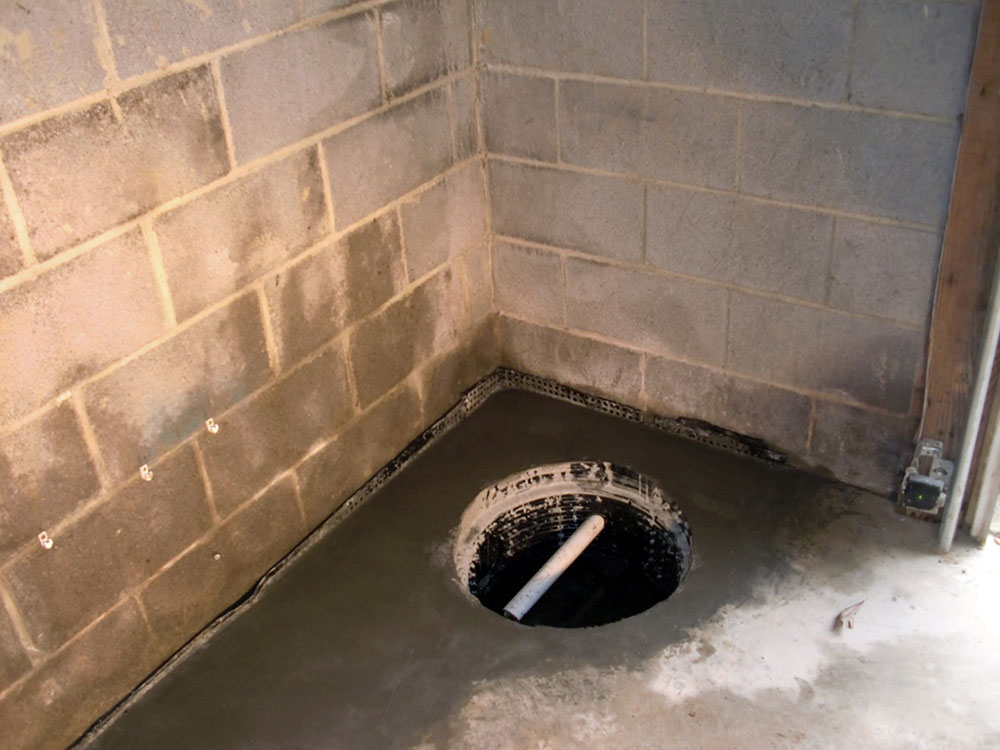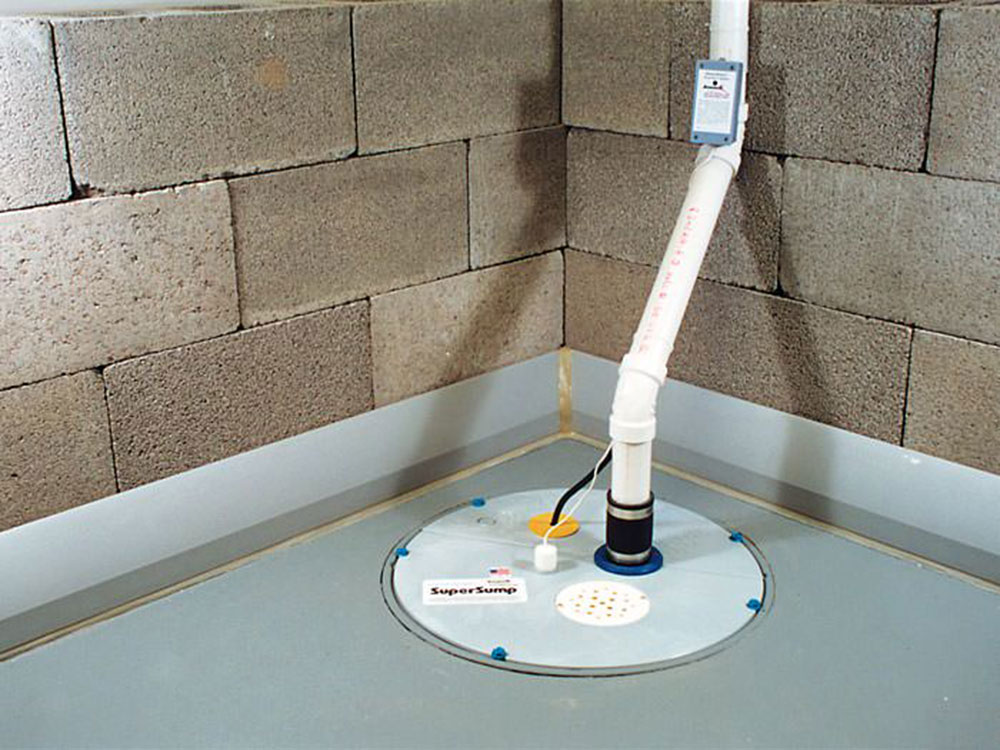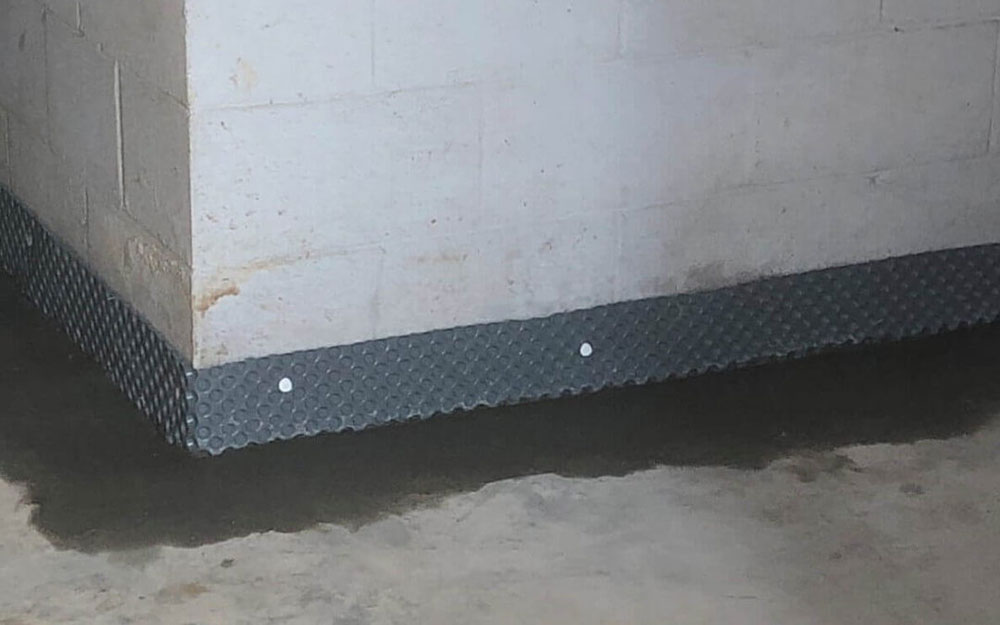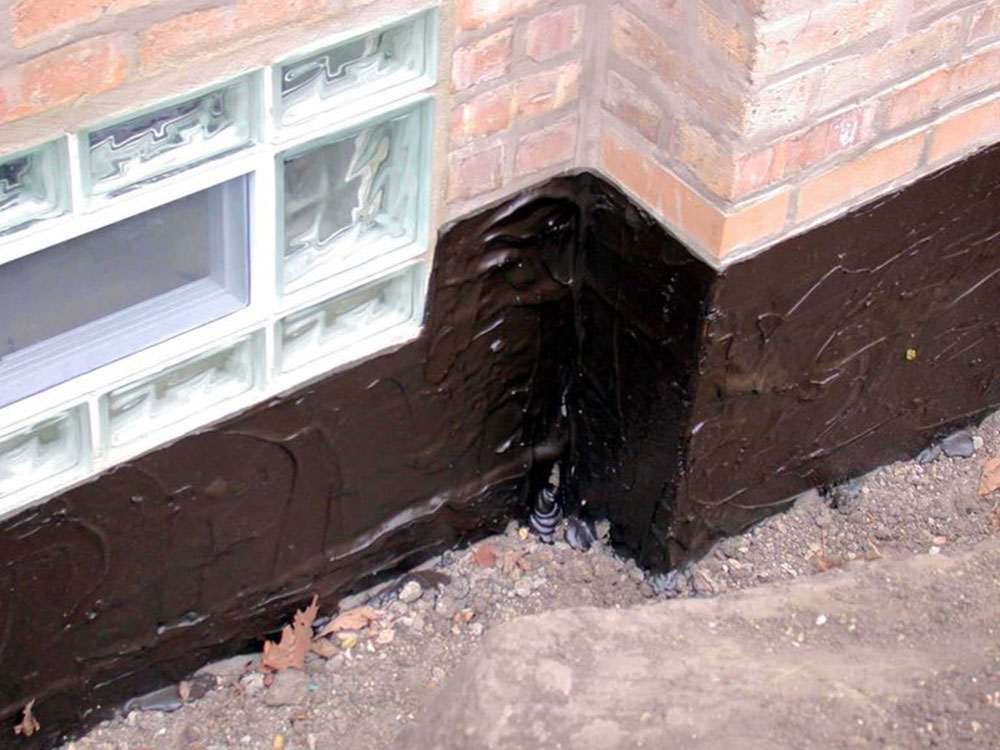Advertisement
According to research from the American Society of Home Inspectors, more than 60% of all basements have moisture, and 38% of all basements will have either mold or fungus. With the first 10 of 15 years of a house’s lifetime, it is bound to experience basement leaks as well.
This piece of research is definitely a reason for concern. It means that there is a high likelihood that you will have to deal with one of the above-mentioned problems at one point. But not many scenes will fill house owners with more horror than imagining their basement getting flooded and the water entering their house.
If you spot water in your basement, you should be concerned. Not only it can cause moisture and mold, but it might indicate far bigger problems that might escalate at some point. To protect yourself and your family, you will need to know how to stop water from coming up through the basement floor. Luckily, we are here for you.
Why is the Basement Leaking from the Floor?
There might be multiple reasons for the water to be leaking into your home. Here is the most common one.
Spring rain. It might be nice for your flowers and your garden, but not so great for your basement. The water from the rain might start to leak into your basement, causing you major headaches. And you might start to wonder where the water is leaking, and how to stop it. You are certainly not alone, though.
The water will start creeping up into your basement through the cracks and holes. But why does it happen?
During the rainy season, the groundwater levels will naturally rise, and the levels outside the basement will rise above the level of the floor. This means that your basement will act like a boat in a pond: as soon as there are any small cracks or holes, the water will start seeping through them. And the more water there is, the bigger the consequences will be.
You will know this is a problem once you spot water coming up through cracks in your basement, and in multiple locations, too.
For older houses, this is even a bigger issue. Many of these older households don’t have a sump pump, so it means that they are connected straight to the city storm sewer system. And if the basement is below the street level, then there is even a bigger likelihood of this being a problem.
The water might get pushed from the city storm sewer system towards the perimeter foundation drain system. There, the water might saturate the soil around your basement, leading to inevitable pressure and thus, flooding.
But how to stop water from coming up through the basement floor?
It’s all About Prevention – Keep Water Away
In order to know how to stop water from coming up through the basement floor, we will need to know about preventative measures first.
The first step starts with diverting the rainwater away from your basement altogether. This might include tasks such as building proper grading, gutter maintenance, downspout extensions, crack repairs, window well covers, caulking, waterproofing concrete, brick, and masonry. These are simple steps, but they will protect you massively from water entering your basement.
Diverting the water away after heavy rainfall and snow melts is very important. Here, we will take a look at how to prevent the water entering by diverting it away from your basement in the first place. It only takes a few simple steps, but they can go a long way for protecting you against flooding.
Clean the Gutters
When the gutters get clogged, they are much more likely to cause problems. They can easily overflow and the rainwater will start collecting around the foundation of the house very soon. So it is very important to unclog the gutters: remove the leaves and the debris from the gutters, install leaf guards or downspout extenders, and keep them in constant check.
Gutter Extensions
Add plastic or metal gutter extensions to your gutters. If the gutters are leading the water too close to your home, then it is inevitable that some or all of it will end near or in your basement. The downspouts will dump the water away from your home, and you will be saved from the extra hassle of water entering your basement.
Use Water Shedding Clay-loam mix
Over time, the soil around your foundation will settle, leaving more space for the water to escape into your home. You can solve that issue by buying some water-shedding clay-loam mixture, and create more foundational work to prevent water from entering.
Create a Slope
The land around your home should slope away from your home to leak the water away from it. If it is not already, then make sure it does to prevent water from coming in. Also, inspect for various indentations and depressions in the ground next to the foundations. You can fill them up with dirt easily, so that the water will flow away.
If you have lawn edging or gravel around your home, then you should consider making a slope. It should be 6-ft. wide and should drop 4 inches away from the foundation. Cover the soil with poly, and hide it with mulch or gravel. This should keep the water flowing away.
How to Stop Water from Coming up Through the Basement Floor
Method #1: Install a Drainage System
Installing a drainage system can be done on your own, but it requires skill, precision, and plenty of knowledge and experience with this type of work. This means that professional help should be sought if you don’t know much about it.
The materials alone can cost you up to $1000. If you will want some professional help, then be prepared to spend an additional $3000-$8000.
However, the reward of a drainage system is remarkable. Firstly, it will decrease the hydrostatic pressure, and you will be able to catch the water before it even comes close to your basement. The drain tile will collect the water coming through the foundation walls, and the drainage system will lead the water to the sump pump, which pumps the water away from your home.
This procedure requires a lot of digging, pipe work, and time. If you want to do it yourself, here’s what you can do.
Break out the concrete, but leave the small sections intact to prevent the wall from dropping down. Make sure you support the wall properly. Tunnel under the furnace if you have one. The materials can be found at a local home center. You’ also need to order some rock, and a pickup to haul the dirt to the landfill.
Method #2: Waterproof your Basement
One good way of how to stop water from coming up through the basement floor is by waterproofing your basement. This includes fixing and filling the holes and cracks within your basement floor, and by waterproofing the walls of your basement.
First, you will want to plug the holes and cracks in the foundation. Not only do the cracks allow water to come in, but also the moisture. It won’t solve the leaks, but it will certainly decrease the chance of leaking. Use hydraulic cement to plug the holes, because it expands when you put it into a hole, and it will lock in much better.
For it, you will need a cold chisel and an angle grinder fitted with a masonry cutting disc. First, you will want to enlarge the hole or a crack into an inverted V. Follow the instructions on the package for a better installation.
Also, you will want to waterproof your basement walls. You will need a waterproofing membrane for this. Start with brushing the coating in all directions, and fill every hole and crack. You will also want to add a second coat to provide better insulation.
If the wall is dry, let it dry first. If it is wet, the material won’t stick as easier, and the whole process will not be as effective. If you can’t speed up the drying, install a fan to increase evaporation, and make sure to provide enough air to prevent moisture and mold.
Ending thoughts on how to stop water from coming up through the basement floor
Hopefully, you now know how to stop water from coming up through the basement floor. Prevention is important, and there are plenty of things you can do.
If you enjoyed reading this article about how to stop water from coming up through the basement floor, you should read these as well:



